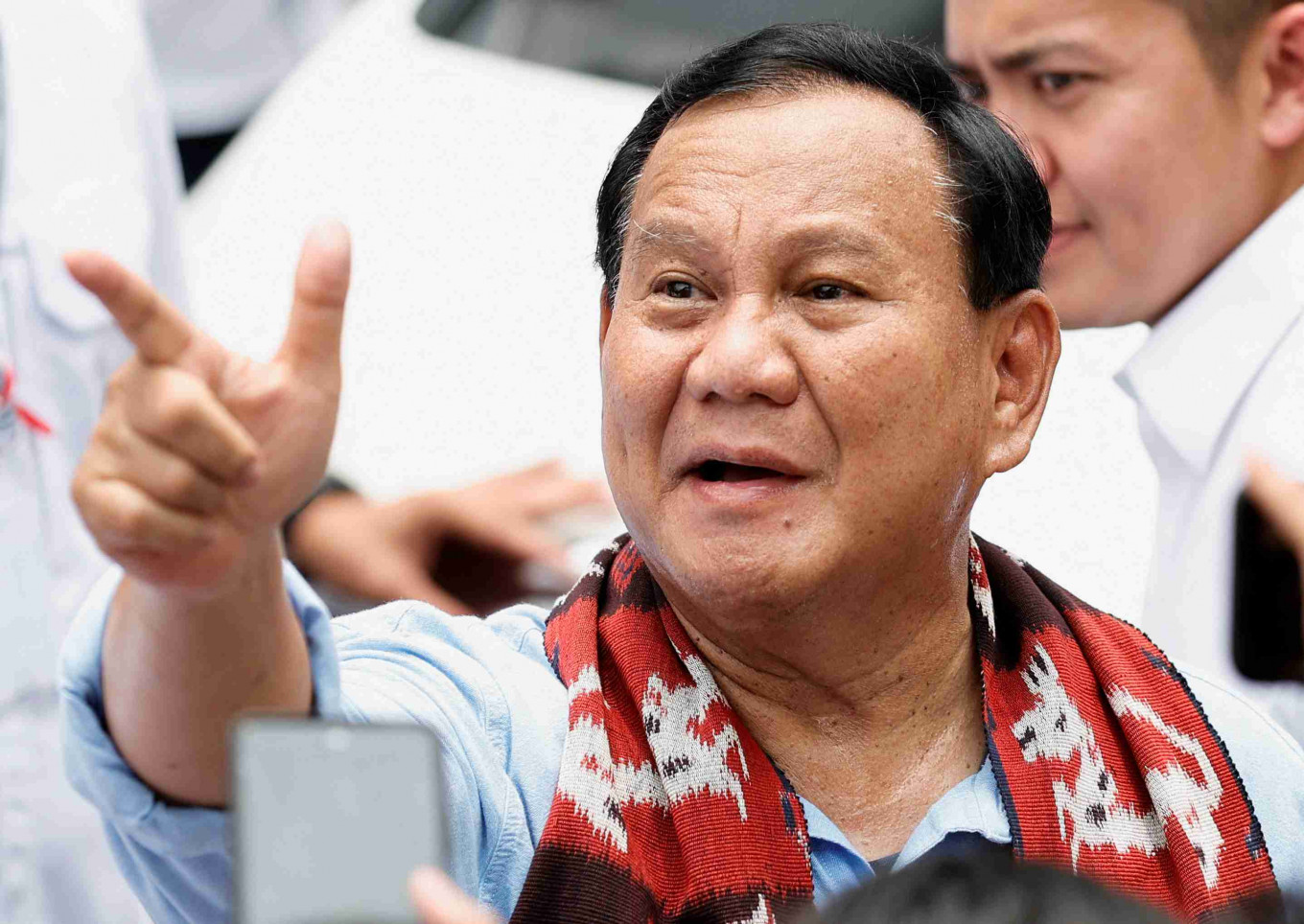Popular Reads
Top Results
Can't find what you're looking for?
View all search resultsPopular Reads
Top Results
Can't find what you're looking for?
View all search resultsIndonesian presidential candidates consider ending state power monopoly
Indonesia's leading presidential hopefuls are considering a push to end the state power utility's monopoly as part of efforts to speed up the transition to greener energy, their teams told Reuters.
Change text size
Gift Premium Articles
to Anyone
Indonesia's leading presidential hopefuls are considering a push to end the state power utility's monopoly as part of efforts to speed up the transition to greener energy, their teams told Reuters.
All three candidates vying to win the Feb. 14 election in Southeast Asia's largest economy have said they will prioritize cleaning up the power sector to reduce greenhouse gas emissions.
To do that, Defence Minister Prabowo Subianto and former provincial governor Ganjar Pranowo, running neck-and-neck in recent surveys, would consider ending state-run Perusahaan Listrik Negara's (PLN) monopoly in order to allow renewable power producers to sell directly to customers.
It won't be an easy task. Indonesia lacks the regulations needed to determine fees independent power producers must pay to PLN and the scope of services PLN can offer to them. The geography of the sprawling archipelago also means the grids of major islands are not interconnected, complicating nationwide power sharing.
Former Jakarta governor Anies Baswedan, trailing in opinion polls, has called for improved leadership for the power sector but has not proposed breaking up PLN's monopoly.
Previous talk of opening the sector to competition has faced pushback over the prospect that what are now tariffs fixed by the government could fluctuate according to market forces.
Proponents argue that opening the sector would accelerate adoption of renewables, as independent power producers will be incentivised to offer green power to companies pledging carbon neutrality.
PLN is the sole seller to most customers, managing power plants and also buying from the independent producers, with over half of its supply sourced from coal and 12 percent from renewables.
PLN did not respond to requests for comment. It has said it plans to develop 31.6 GW of renewable capacity from 2024 to 2033.
Agam Subarkah, chief executive of climate consultancy Cendekia Ikim Indonesia, said pushing through such a reform would require resolve.
"These candidates must remain focused on the purposes of the policy, which are accelerating the adoption of renewable energy, offering competitive pricing to customers and emission reduction," he said.
POWER WHEELING
Ganjar, the ruling PDIP party's candidate, proposes to focus PLN on expanding power lines and connecting islands, allowing renewable producers to "wheel" electricity onto the grid and to customers, his climate policy advisor Alexander Sonny Keraf said.
Keraf, a former environment minister, said PLN had objected to past proposals for wheeling, but if Ganjar wins, "we will force them".
Experts drafting energy policy for ex-special forces commander Prabowo have also discussed wheeling, but with the government maintaining control over tariffs, said Eddy Soeparno, senior official at Prabowo's campaign.
"Multiple buyers and multiple sellers, but within the context of energy security, which means the selling prices to consumers must remain affordable," said Soeparno, who is also deputy head of parliament's energy committee.
Implementing wheeling would require new regulations.
Agam, from the climate consultancy, said delaying renewable power to companies could mean lost investment.
"If these companies cannot secure renewable energy by 2025 or 2030, they could mark Indonesia down as somewhere they cannot expand their business in because of the difficulty in getting renewable energy," he said.











